8 W.Va. Sites Added To National Register Of Historic Places
Eight historic sites across West Virginia have been added to the National Register of Historic Places.
Continue Reading Take Me to More News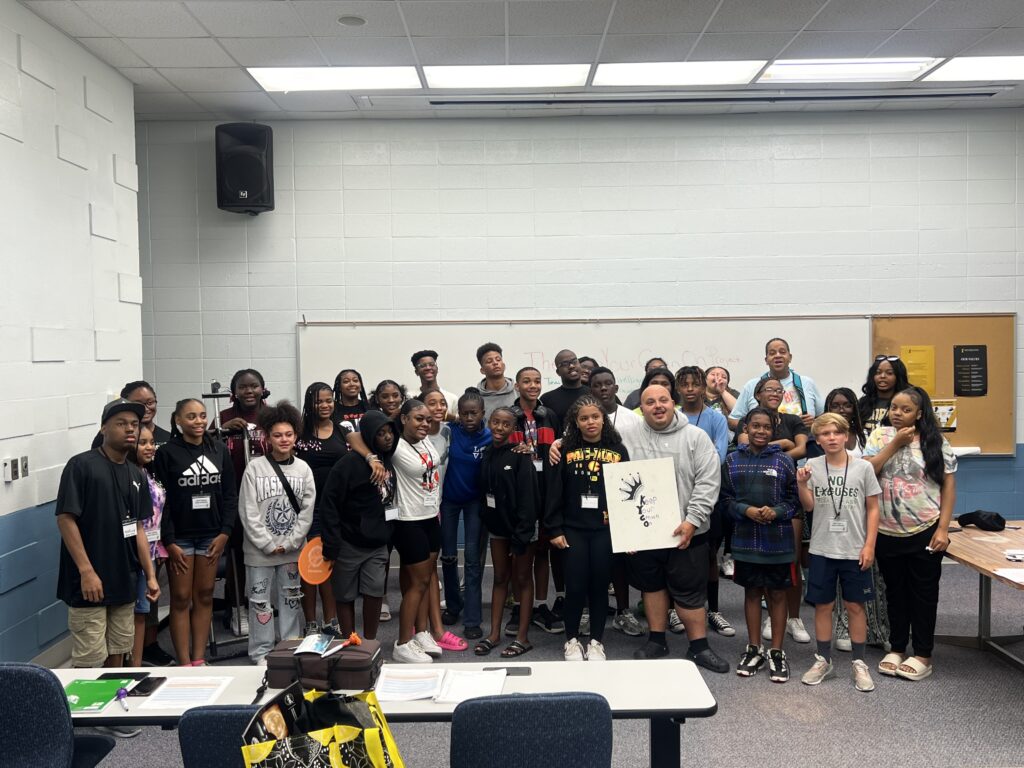
This story originally aired in the Feb. 9, 2025 episode of Inside Appalachia.
It’s a Monday morning in July 2024 on the campus of West Virginia State University. But it’s not an average Monday morning. It’s day one of the Norman Jordan African American Arts and Heritage Academy, where each summer teenagers gather for a week filled with arts, culture and heritage. There’s a buzz of excitement in the air as returning campers exchange hugs and hellos, new students make nervous introductions, and orientation commences.
Now in its 30th year, the academy was founded by a group of West Virginia artists and educators, including Norman Jordan, for whom the camp is named. Norman Jordan was a poet and a prominent leader in the Black Arts Movement, both in West Virginia and nationwide. When Norman Jordan passed away in 2015, his wife Brucella Jordan took on the role as camp director.
The theme of this year’s camp is to be young, gifted and Black. Throughout the week-long program, campers focus on a specific artistic genre, like dance, creative writing or theater. But it isn’t just an arts camp. It’s also about heritage and identity.
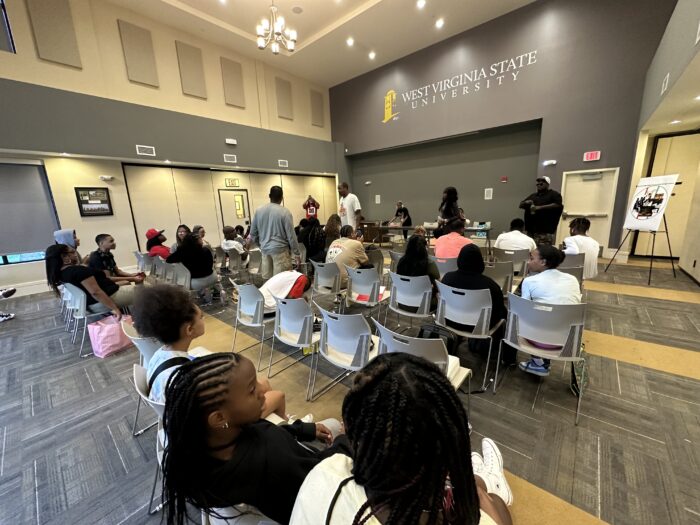
During camp orientation, Jordan welcomes the students by introducing them to what is known as a ‘libation ceremony.’
“We always start our program with a libation ceremony,” Jordan says. “A libation ceremony is an ancient African ceremony that gives recognition to people in our lives and ancestors.”
Students look on, attentive and wide-eyed, as Jordan performs the libation ceremony, pouring water into a glass jar in memory of the ancestors. She tells them to say something they are thankful for, then everyone else will say “ashay” which means “let it be.”
The orientation and libation ceremony kicks off a full week of classes and activities. This year, there are about 30 students, many of whom are returning campers, like Sariah Nichols. She’s a freshman in high school who’s been coming to the camp for three years now. “At first, I was really anxious to see if all my other friends were back and stuff like that, but now I’m just really excited and happy to see everybody,” Nichols says.
Nichols’ focus this week is on singing. The vocal instructor, Linda Ealy, has chosen a variety of songs to learn this week, like the song “To be Young Gifted and Black” by Nina Simone, which is the inspiration for this year’s theme.
“Ever heard of Nina Simone? Do you know anything about Nina Simone?” Ealy asks the class. “That’s your homework for tomorrow. Find out something about Nina Simone. Just one fact.”
Learning about prominent Black artists is a key aspect of the camp’s curriculum. Jordan says that’s one of the main goals of the academy – to foster a sense of cultural identity and self-expression.
“We do the camp on a teenage level, because we know teenagers often they have not discovered their own talents,” Jordan says. “I believe when they identify that aspect of themselves, and also the African American cultural heritage, it always gives them greater self identity.”
Jordan has witnessed that process of self-discovery firsthand. Her own children attended the camp as campers. Now as adults, they are artists and organizers. They have even become instructors at the academy, carrying on their father’s legacy. Over the years, other families have become involved with the camp, too. It’s common for parents and grandparents to help out in different ways. In fact, Nichols’ father is here this week as a guest instructor for poetry.
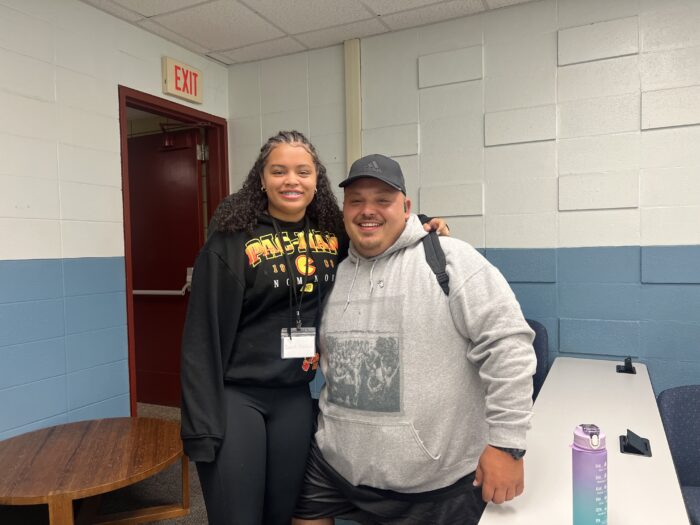
Nichols’ father, James Nichols, goes by “Jimmy Da Poet.” Although James Nichols didn’t know the Jordans before this camp, he’s been inspired by Norman Jordan and his legacy.
“I think that his vision is becoming more full circle, not just for his family, his kids, but just for people like my kids and myself. So I’m very honored to be at something like this,” James Nichols says.
In his poetry workshop, Nichols is leading the campers through a writing exercise that he calls the “Forgiveness Practice.”
“Poetry has always been an outlet for me. Freestyling has always been an outlet for me. And I thank God that I have it,” Nichols explains to the students. “So I want you, as we go through the forgiveness practice, I want you to really think about the things that you’ve gone through. And I want you to come up here and give me a victory speech.”
The students write about a difficult situation they’ve had to overcome and at the end of the class, they have the option to deliver a “victory speech.”
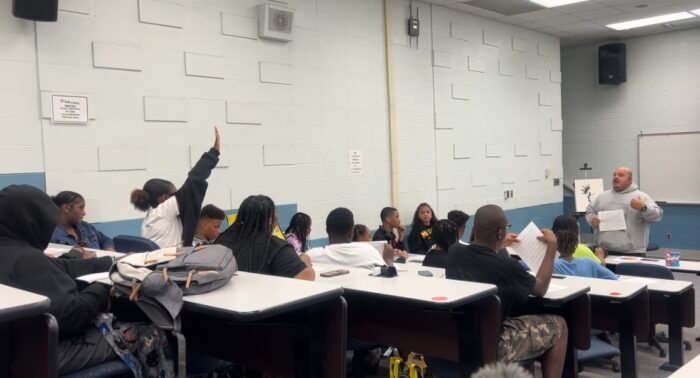
Nichols is passionate about sharing this experience with his daughter Sariah.
“It was important for her to come to this academy because I understand how important the arts are,” he says. “I understand how important freedom of expression is, the First Amendment. Now that I think about her being in that workshop, if there’s anything that I want her to understand, it would be two things: there’s power in the gifting and there’s power in vulnerability.”
Sariah Nichols says after three years of coming to camp, she’s seen the impact camp has made on her life. “It’s shown me a lot more social skills, helped me make new friends and family … it’s changed my life,” she says.
After a full week of classes and rehearsing, it’s time for the closing ceremony. Campers present slideshows of their drawings and paintings. There’s theater, dance and Sariah Nichols is performing with her vocal group.
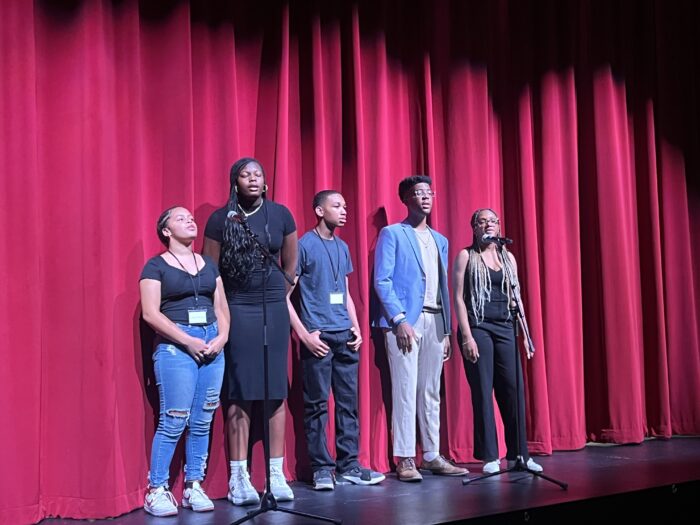
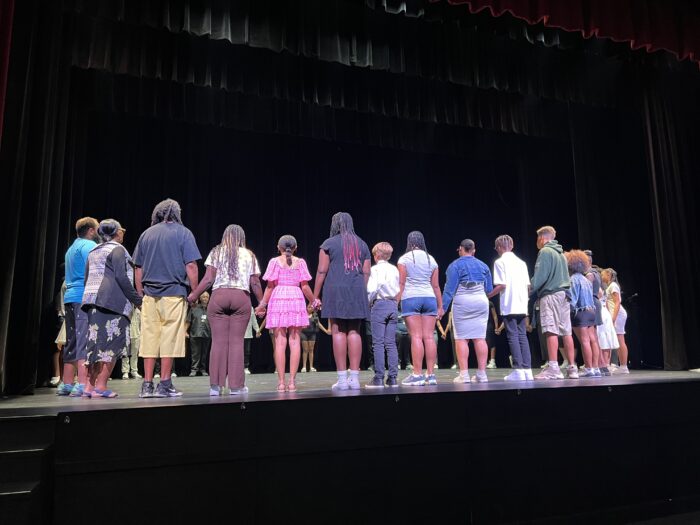
For the final send off, the entire group joins together on stage where they stand hand-in-hand and say “harambe” in unison, a Swahili word that means “all pull together.”
While this year’s camp has come to a close, Sariah Nichols and her fellow campers are already planning to come back next summer, for another week of Black arts and heritage in the West Virginia hills.
——
This story is part of the Inside Appalachia Folkways Reporting Project, a partnership with West Virginia Public Broadcasting’s Inside Appalachia. Subscribe to the podcast to hear more stories of Appalachian folklife, arts and culture.